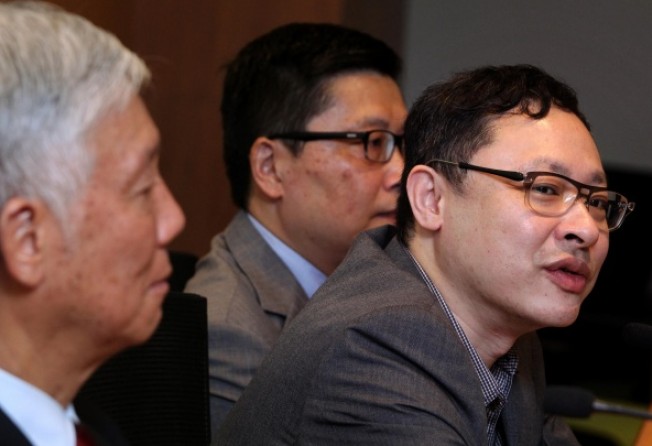Occupy Central organisers set democracy 'D-Day'
Occupy Central organisers hope for new beginnings with first of three deliberation days

Hong Kong will experience a new style of democracy - over and above the act of casting votes - as the Occupy Central movement launches the first of three "deliberation days" early next month.
The June 9 event will bring 600 participants to the University of Hong Kong in the city's first attempt to forge consensus by deliberation, organisers of the civil disobedience campaign for universal suffrage say.
Each of the three "D-Days" would seek different discussion objectives, said Dr Benny Tai Yiu-ting, an HKU law professor who proposed the Occupy Central plan. "We expect the first deliberation day to set the agenda of the movement and start discussing the understanding of various components of the movement, such as non-violent protest, civil disobedience and referendums."
The idea of a deliberation day is borrowed from Stanford University professor James Fishkin's book of the same title. It is a decision-making process that advocates direct participation by citizens.
The concept forms an integral part of the Occupy Central movement, which is named for its last resort - to rally 10,000 protesters in July next year to block roads in Central in a push for democracy in the city.
The first D-Day will be the smallest in scale, comprising 500 supporters of Occupy Central and 100 members of the public invited randomly by the HKU public opinion programme. It would cost at least HK$200,000 and the group aimed to raise funds from the public, Tai said.
That will be followed by a second day in September and the third early next year - expected to draw at least 10,000 people.
Dr Robert Chung Ting-yiu, director of the HKU programme, which had been commissioned to organise the deliberation days, said he was confident the idea would work in Hong Kong, as it did previously in Macau and on the mainland, despite the fact that the concept was completely new to the city's population.
Chung insisted his team of pollsters was "politically neutral" to Occupy Central. They were offering "professional research services" to make sure the process met international standards.
"We also see the deliberation days as opportunities to build a civil society," he said. "It is a very progressive concept and is much better than fist fights."
Chung said participants at the first D-Day would be divided into some 40 groups. They would spend the whole afternoon engaging in in-depth discussion about Occupy Central with people they barely knew. Those 100 attendees who were members of the public would get a travel allowance of HK$100.
The pollsters would study the results of the first deliberation day to prepare for the next event.